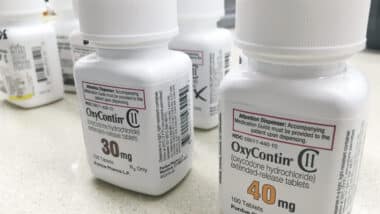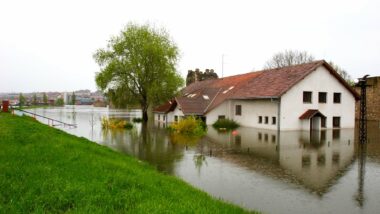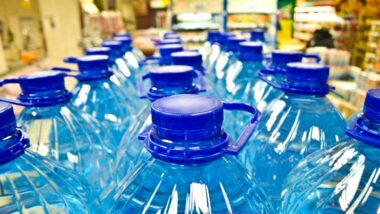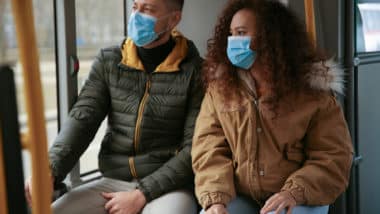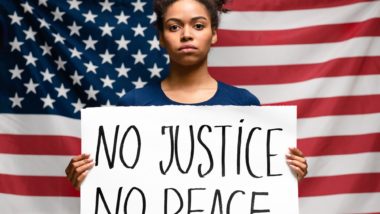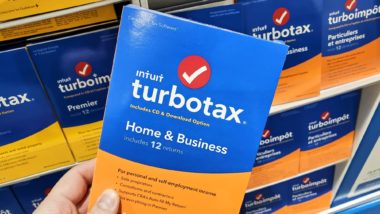
The ongoing coronavirus pandemic has forced us to make a lot of changes to our daily lives. While many of us are sequestered at home, there are certain essential workers who have to continue their work—not least of which are the healthcare workers who are fighting hard against this virus.
But a healthcare worker faces a slew of risks as they go about their work, now more than ever, as they are continually exposed to this virus with long hours, inadequate protection, and high numbers of patients.
What is a Healthcare Worker?
Around the world, there are more than 59 million people employed by healthcare facilities, according to the World Health Organization. These workers are exposed to a number of health and safety hazards on a daily basis in the course of their work, from diseases to radiation to chemicals and more.
A healthcare worker provides healthcare treatment and advice to patients after undergoing years of training. Healthcare workers include a variety of professionals, from physicians, surgeons, and nurses to psychologists, dentists, and pharmacists.
How Many Healthcare Workers Are in the US?
In the United States alone, there are over 18 million healthcare workers. A healthcare worker is more likely to be female than male—indeed, women make up nearly 80 percent of the healthcare industry, according to the Centers for Disease Control and Prevention (CDC).
What OSHA Regulations Have Been Provided to Protect Healthcare Workers?
Since the onset of the coronavirus pandemic, the Occupational Safety and Health Administration (OSHA) has provided certain guidelines in an effort to protect healthcare workers.
OSHA regulations from before the coronavirus pandemic still stand. Relevant requirements include the use of Personal Protective Equipment (PPE), including gloves and eye, face, and respiratory protection.
Notably, OSHA regulations include a General Duty Clause, that requires employers to furnish each worker (including a healthcare worker) “employment and a place of employment, which are free from recognized hazards that are causing or are likely to cause death or serious physical harm.”
So far, 28 states have provided their own OSHA-approved State Plans, which must be at least as stringent as OSHA’s standards. In California, the Aerosol Transmissible Diseases (ATD) standard is meant to prevent healthcare worker illness caused by infectious diseases that spread through the air, including coronavirus, along with bacteria or other disease-causing organisms.
OSHA’s guidelines note that healthcare workers—especially those performing aerosol-generating procedures like intubation, cough induction, bronchoscopies, and others—are at very high exposure risk for coronavirus. Healthcare and laboratory personnel who collect or handle specimens from coronavirus patients are also at very high risk. Healthcare delivery and support staff, along with medical transport workers, also face high exposure risk.
How Can Companies Ensure Safety for Healthcare Workers During the Coronavirus?
OSHA provides a number of guidelines for protecting healthcare workers during the coronavirus, including cohorting (that is, grouping) coronavirus patients when single rooms are unavailable. The use of alcohol-based hand rubs is recommended for decontamination for emergency responders and others who work away from fixed facilities and may not have adequate access to soap and water.
Personal Protective Equipment (PPE) such as gloves, a gown, a face shield or goggles, and a face mask or a respirator are likely necessary for any healthcare worker at high or very high exposure risk.
Are Healthcare Workers Receiving Appropriate Safety Protections During COVID-19?
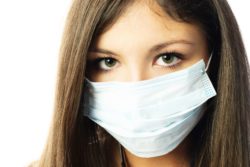
A similar issue was seen in Wuhan, China, when 1,300 healthcare workers were infected with coronavirus, and they themselves became potential transmission vectors, reports The New Yorker.
The city reportedly had to bring in thousands of workers from outside the city, but by that time, the city had been locked down, healthcare workers were no longer staying at home, and they had extreme PPE available: goggles, head coverings, N95 particle-filtering masks, and hazmat-style suits. As a result, none of the additional 42,000 healthcare workers were infected.
But real healthcare worker safety in the U.S. may be harder to attain during this pandemic. Facilities don’t have nearly the number of supplies to allow that extreme full-coverage PPE for its healthcare workers, and the number of cases is skyrocketing across the country.
Indeed, the FDA has even issued recommendations for conserving essential PPE like surgical masks and gowns.
Some have tried to make money off of the PPE shortage, such as the company that bought up a large number of N95 masks and sold them at exorbitant prices. The Attorney General of Ohio filed a lawsuit against the company for price gouging—individual masks sold for an average of $36.34 instead of the usual average of $2.05 per mask.
There are also many people doing their best to help, making their own masks and even providing masks for others. Some healthcare workers may be using handmade masks donated by the public in an outpouring of support, which are certainly better than nothing but are not up to the standards of N95 particle-filtering masks.
How to File a Coronavirus Healthcare Worker PPE Lawsuit
If you are a healthcare worker in California and were not given adequate PPE by your employer, potentially being put at an increased risk of contracting COVID-19—or if your employer required you to provide your own PPE but did not reimburse you the cost—your employer may have violated California law. You may be eligible to join a free coronavirus healthcare worker safety class action lawsuit investigation.
Federal and state laws protect workers from retaliation by their employers for taking this kind of legal action.
Filing a lawsuit can be a daunting prospect, especially with the uncertainty and fear of the ongoing pandemic, so Top Class Actions has laid the groundwork for you by connecting you with an experienced attorney. Consulting an attorney can help you determine if you have a claim, navigate the complexities of litigation, and maximize your potential compensation.
Join a Free Coronavirus Essential Employees PPE Lawsuit Investigation
Essential workers in California who have not been provided PPE by their employers may qualify to join a free coronavirus work safety class action lawsuit investigation.
ATTORNEY ADVERTISING
Top Class Actions is a Proud Member of the American Bar Association
LEGAL INFORMATION IS NOT LEGAL ADVICE
Top Class Actions Legal Statement
©2008 – 2026 Top Class Actions® LLC
Various Trademarks held by their respective owners
This website is not intended for viewing or usage by European Union citizens.





